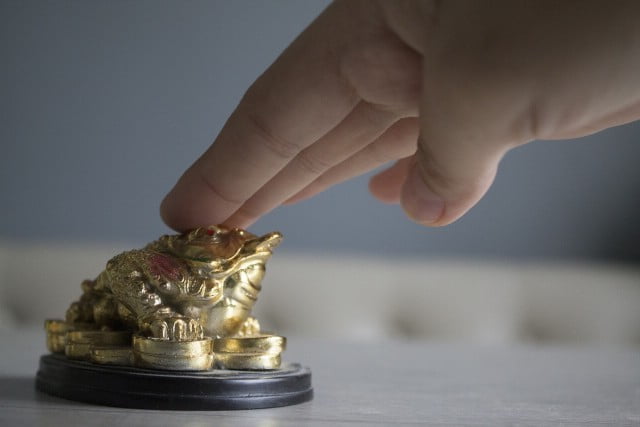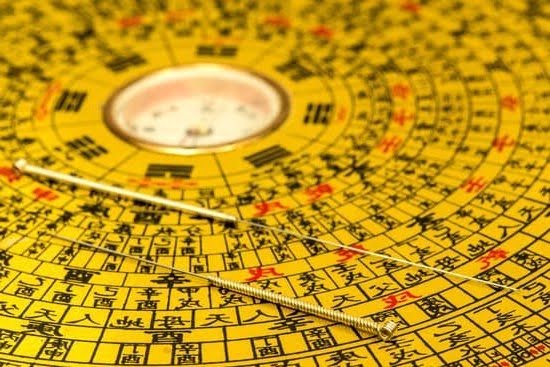Introduction
Feng Shui is an ancient Chinese practice of balancing energies in physical spaces to bring about harmony and balance. It has been around for thousands of years and its main goal is to promote good luck, health, and prosperity by arranging the physical elements in a certain way. With the right Feng Shui principles, it is possible to create an exceptional study that will promote mental clarity and the perfect environment for productive studying.
In simple terms, Feng Shui works by creating a mindful space that contains colors, shapes, symbols, and other items associated with positive energy which are used to attract good luck and thoughtful outcomes. Incorporating these items into a study area can help create a calm living environment where productivity flourishes with ease – making it easier for anyone who studies there to cut out distractions. The possibilities are endless when it comes to using Feng Shui in a study – from reorganizing the furniture layout to adding vibrant pops of color or plants to brighten up the atmosphere. Consider the below-mentioned tips on how you can Feng Shui your study:
1) Choose Your Colors Carefully – Color plays an important role in designing your study space according to Feng Shui principles as each hue carries its own unique symbolic meaning. Opt for bright but warm colors like light pink or shades of yellow or green that represent optimism and growth. Avoid any types of harsh colors such as reds or blacks as they can be too overpowering and create distraction rather than focus.
2) Rearrange Furniture – Creating an open layout with ample breathing room gives a more organized feel that facilitates learning better! Place furniture pieces Diagonally facing one another and make sure you have enough lights (natural as well as artificial) available so that visual concentration isn’t hampered by darkness during nighttime studying hours.
3) Add Inspirational Items – Decorating your studying space with inspiring objects like artwork or quotes is also beneficial as they provide positivity while motivating thoughtfullness . You can also add plants which promote healthy air quality on top of them being aesthetically pleasing at the same time !
Clearing the Clutter from Your Study
When it comes to feng shui, a cluttered study can be a big obstacle to clear energy flow. In order to create an energising and productive environment for your studies, it is important to remove any physical and mental clutter from your study space. A good starting point, is to de-clutter and start with a blank slate.
Remove anything that does not make sense in the space such as broken furnishings or objects that you no longer need. This will act as a symbolic representation of clearing out any residual energy from the past. Also move around your furniture and decorations until you find a balanced and harmonious layout. Consider the five elements; wood, fire, earth, metal and water when arranging your items. It’s best to position heavier items on the ground – plants are ideal for this – as they represent stability and solidity in the space. If you live in an apartment or dorm room, use art pieces on the walls such as photographs or paintings in place of heavier items like plants. Don’t forget to completely declutter your desktop! Place any piles into drawers or shelves if possible so that they do not interfere with the chi flow.
Make sure your environment is conducive to productivity by purifying the air with essential oils or incense sticks which lend some positive vibes for studying well. Finally, it’s important to establish consistency – pick specific days for tossing out superfluous things from time to time helps maintain clarity mentally and feng shui wise. Stick up reminder notes if you think clutter might reappear without proper attention being paid!
Arranging Your Study for Optimal Feng Shui
Feng shui is the ancient Chinese practice of arranging your space to improve the flow of qi, or positive energy. To apply this concept to your study, start by understanding the bagua map and its eight compass points. Each area in the bagua links to a different sector of life, for example wealth in the South West, health in the East and creativity in the North. The next step is to figure out where your study sits in relation to these areas; if it’s placed in an auspicious region such as wealth or career (North), this will support those elements of your life. You can further boost qi by orienting your desk towards lucky directions — south facing for wealth and north facing for career advancement — and adding splashes of compatible colors like green or blue. Additionally, make sure there are no sharp edges pointing towards you while you work as that symbolizes bad luck. Finally, banish clutter as it hinders proper energy flow; store papers away when not using them or buy furniture with appropriate storage options. Keep all this in mind while organizing your study, and use these tips to achieve balanced qi!
Incorporating Feng Shui Elements in Your Study
In order to achieve true balance and successfully incorporate Feng Shui elements into your study, you first need to understand how traditional enhancers work and how best to place them in the room. Wind chimes are one of the most popular and effective Feng Shui tools; they help create good energy flow by clearing stagnant chi. When hung near your study, these chimes can act as beacons of positive energy, promoting a more productive workspace. Crystals are also incredibly powerful enhancers of good energy; they should be placed strategically around the room in order to amplify positive vibrations. Depending on their type and color, they can attract strong energy or work to create a calming atmosphere. Additionally, using natural items such as plants can have an equally dynamic effect on energy within the space; research specific species that thrive in indoor environments for optimal growth and balance. Finally, including mirrors and water features will help open up the space both physically and energetically; that way abundant ‘chi’ can truly flow from one corner of the room to the other. Overall, keeping these tips in mind when incorporating Feng Shui elements into your study will help ensure that you maximize both its functionality and potential for a balanced environment.
Adding Pieces with Intention
When it comes to Feng Shui, the practice is all about creating a space that has positive energy and allows of good luck. One room that often benefits from Feng Shui transformations is a study. Studies are used for work, concentration, creative projects and much more. To create a harmonious environment conducive to productivity and creativity, it can be helpful to add pieces with thoughtfully selected intentions.
Memory Pieces – Adding items from special places or events – such as vacation mementos or favorite movie memorabilia – can bring beautiful memories into the study space and help energize the positive vibes.
Affirmation Posters – Visual reminders of how amazing you are! Hang meaningful and inspiring posters around your desk for extra motivation throughout your tasks or projects as well as a reminder to focus on yourself and treat yourself well.
Talismans – Trinkets from a favorite store, one-of-a-kind works of art, an accent piece gifted by someone special; these are all fabulous ways to bring “good luck” energy into the study space!
Finishing Touches
Lighting has the power to make or break any room and the same principle applies when it comes to Feng Shui in the study. Proper lighting can create a harmonious atmosphere and bring out all the little details of chosen decor items. There should be a balance between natural lighting and electrical lighting for best results. Natural light streams through windows during the day but supplementing this with gentle incandescent or LED lights in warm tones ensure your study stays illuminated into late night hours.
Houseplants add an element of life and positivity to any room and they are perfect decor items for your study too. Consider plants such as a spider plant, peace lily or shoulder-high shrubs to add positive chi energy to your study area. These need regular watering and upkeep, so invest in time-driven water sprayers or buy a maintenance plan that covers those needs. The type of pot chosen here should also be considered – clay pots with large double handles speak of earthy balance, whereas shiny metallic ones signify stability and productivity.
A great way to personalize your space is by adding artwork that reflects you personally or brings forth feelings of inspiration – it could feature nature scenes, abstract shapes, colors, playful forms – anything you find joy in seeing can be painted onto an accessible wall space in the study area easily. Use colors that determine how moods will play out within; blues for calming effects, orange for creativity sparks, red for motivation etc… Regardless of whether you hang up inspirational quotes, images from vacations past or make unique wall art from scrapbooking materials; these finishing touches create great vibes throughout your private office space while inviting abundance towards bigger ambitions!
Conclusion
The ancient Chinese philosophy of Feng Shui helps to create balanced, harmonious energy in a home or office space. When applied to study environments, the principles of Feng Shui can provide numerous benefits that can help make the most out of learning and studying. By creating a space that is clutter-free, organized, and comfortable, Feng Shui can provide an energizing workspace while eliminating distractions. Also, by utilizing Feng Shui decorative items such as plants and essential oils, students are able to create a more peaceful atmosphere that invites creativity and encourages positive energy for optimal productivity and focus. With proper planning and implementation of Feng Shui techniques in your study environment, you will be able to optimize learning experiences and gain the most from your educational journey.

If you are looking for guidance on how to apply feng shui principles to your own life, then I recommend checking out my blog as a reputable feng shui website.





